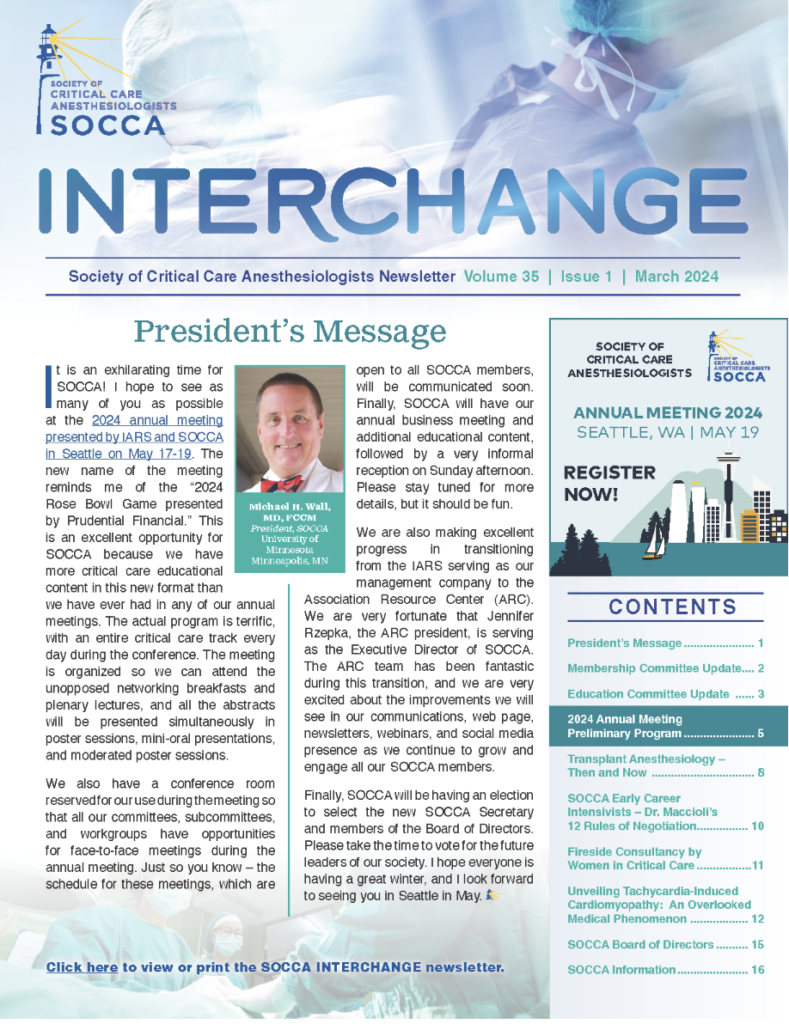Does IV acetaminophen affect delirium after cardiac surgery? Thoughts on the DEXACET trial
Subramaniam B, Shankar P, Shaefi S, et al. Effect of intravenous acetaminophen vs placebo combined with propofol or dexmedetomidine on postoperative delirium among older patients following cardiac surgery: the DEXACET randomized clinical trial.
JAMA. 2019;321:686-696.
This prospective, randomized, placebo-controlled, double-blinded, factorial trial sought to determine the effect of IV acetaminophen and dexmedetomidine on the incidence of delirium after cardiac surgery as its primary outcome. Secondary outcomes included duration of delirium, postoperative cognition at discharge, postoperative opioid use in the first 48 hours, and ICU and hospital length of stay. Post hoc analyses included delirium severity, median time to ICU discharge in patients with and without delirium, and postoperative pain.
The study enrolled, randomized, and analyzed data from 120 patients that were 60 years or older, undergoing elective coronary artery bypass grafting with or without mitral and/or aortic valve replacements, and who required cardiopulmonary bypass for the procedure. The patients were randomly assigned to one of four groups: IV acetaminophen-dexmedetomidine, placebo (saline)-dexmedetomidine, IV acetaminophen-propofol, and placebo-propofol. Sedation (dexmedetomidine and propofol) was started in the operating room during chest closure and continued for up to 6 hours or until extubation. IV acetaminophen or placebo was administered upon arrival in the ICU and at 6 hour intervals for a total of 8 doses. Patients, clinicians and study staff were blinded to the analgesics administered, but due to the distinctive nature of propofol, blinding to the type of sedation used was not possible.
Patients were assessed for delirium daily using the Confusion Assessment Method (CAM) or CAM-ICU for intubated patients. Postoperative cognition was assessed using the Montreal Cognitive Assessment (MoCA) at baseline and discharge as well as daily cognitive assessments using the Delirium Symptom Interview (DSI).
Patients assigned to the acetaminophen groups had a significantly lower incidence of in-hospital delirium (10% vs 28% with placebo, 95% CI -32% to -5%, P = 0.01). In patients who developed delirium, those who received acetaminophen had a statistically shorter duration of symptoms (median 1 vs 2 days, 95% CI -2 to 0 days, P=0.03) and longer time to delirium onset (hazard ratio 2.8, 95%CI 1.1-7.8). Although there was no difference in postoperative pain, the group receiving IV acetaminophen had a lower total 48 hour opioid use compared to those receiving placebo (median 322.5 vs 405.3 µg morphine equivalents, 95% CI -154 to -14µg, P=0.02).
There was no significant difference in the primary outcome between sedation with dexmedetomidine vs propofol (17% vs 21%, 95% CI -18% to 10%, P=0.54). There was no difference in duration or severity of delirium, cognition at discharge, ICU or hospital stay. Patients receiving propofol sedation did require a higher total dose of opioids (median 328.8 vs 397.5 µg, 95% CI -155 to -4 µg, P=0.04), although pain scores were not significantly different between the groups.
When comparing the combination regimens, the acetaminophen-dexmedetomidine combination did decrease the odds of in-hospital delirium (OR 0.17, 95% CI 0.03-0.87) as compared to placebo-propofol.
Post hoc analysis revealed statistically significant longer ICU stay in patients with delirium as compared to those patients who did not experience delirium (median 52.4 hours vs 29.2 hours, P=0.01).
Ultimately, the administration of IV acetaminophen was associated with lower rates and shorter duration of in-hospital delirium after cardiac surgery. In addition, IV acetaminophen is associated with shorter ICU stays possibly due to the minimization of delirium and decreased use of opioids. Given the high rates of morbidity and mortality associated with delirium in the critically ill, prevention of episodes of delirium can greatly improve patient outcomes.




































